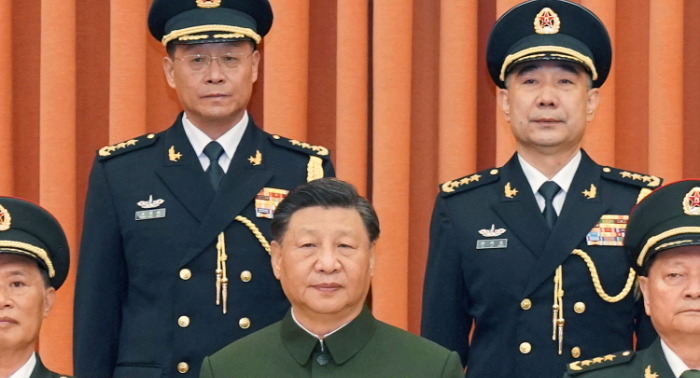The Biden administration’s Middle East strategy has left the United States vulnerable to attacks from Iran and terrorist organizations, according to former government officials.
In recent years, the U.S. had shifted its focus and resources towards what it considered greater threats posed by Russia and China, resulting in a reduction of intelligence and military presence in the Middle East.
The consequences of this strategic shift became evident on October 7 when Hamas terrorists launched an invasion of Israel, resulting in approximately 1,200 casualties and around 240 people being taken hostage.
Immediately after this deadly attack, American officials faced challenges in assessing whether U.S. troops and diplomats abroad were potential targets.
“Biden has largely disregarded the Middle East over the past three years,” said a former senior official who worked on Middle East affairs during the Trump administration, as reported by Politico. “I have spent a significant amount of time in the Middle East, and part of me wished to move on from it as well. However, that is not the reality. They neglected it, and now they are facing the consequences.”
Insufficient intelligence resources in the region contributed to the U.S. failing to predict the rapid takeover of Afghanistan by the Taliban before the final withdrawal of American troops in 2021, according to The Wall Street Journal.
Now, two senior officials have indicated that part of the problem lies in relying more heavily on regional allies for intelligence regarding terrorist organizations.
For instance, Israel is better positioned to gather and analyze intelligence related to activities in Gaza. However, even though Israeli officials had obtained Hamas’ battle plan for the October 7 terrorist attack more than a year in advance, Israeli military and intelligence officials dismissed the plan as aspirational and too challenging for Hamas to execute, as reported by The New York Times.
While some officials have pointed fingers at Israel for the intelligence failure, others acknowledge that the U.S. was ill-prepared for the regional consequences of such an attack.
“Are we currently less capable of understanding how other terrorist organizations with some form of regional or global reach might operate in this environment?” questioned a senior intelligence official, as reported by Politico. “The answer is yes.”
A lack of resources and attention has afflicted U.S. agencies responsible for global counterterrorism efforts.
Since the Obama administration, there has been a push to shift the U.S. focus more towards China and Russia, diverting attention away from the Middle East, as Politico highlighted.
“We began to realize the enormity of [Chinese President] Xi Jinping’s ambitions,” explained a former senior official quoted by Politico. “Not only were they regional but truly global. Ignoring them became increasingly difficult.”
According to two former officials cited by Politico, U.S. intelligence agencies have been studying and analyzing Russian and Chinese attempts to expand their influence in Africa, sometimes through proxy actors.
“Their entire approach to the region, and their approach to foreign policy overall, centers around one key theme: strategic competition with China,” stated Matt Duss, former senior national security adviser to Senator Bernie Sanders, as reported by Politico. “And when it came to the Middle East, their approach was that they didn’t want to focus on it.”




